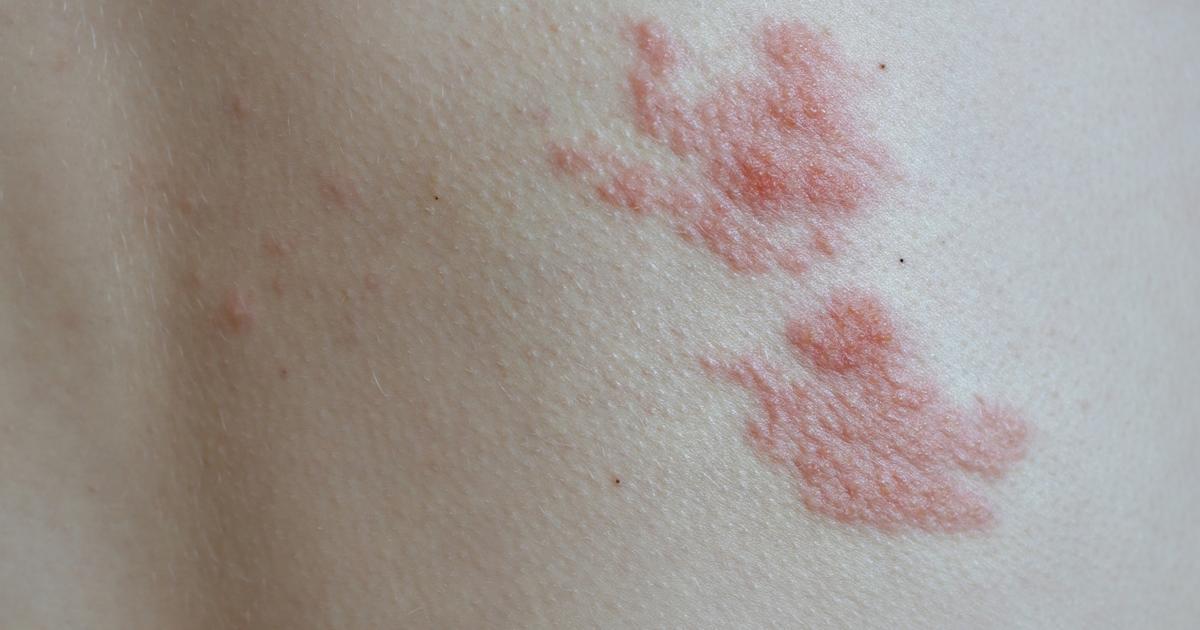
Dr. Dr. Nirag C. Jhala, MD, FICP
Pathologist | Anatomic Pathology & Clinical Pathology
3401 N BROAD ST PHILADELPHIA PA, 19140About
Dr. Nirag Jhala is a pathologist practicing in PHILADELPHIA, PA. Dr. Jhala is a doctor who specializes in the study of bodily fluids and tissues. As a pathologist, Dr. Jhala can help your primary care doctor make a diagnosis about your medical condition. Dr. Jhala may perform a tissue biopsy to determine if a patient has cancer, practice genetic testing, and complete a number of laboratory examinations. Pathologists can also perform autopsies which can determine a persons cause of death and gain information about genetic progression of a disease.
Education and Training
Municipal Med Coll- Gujarat Univ- Ahmedabad- Gujarat- India 1987
Board Certification
PathologyAmerican Board of PathologyABP
Provider Details
Dr. Dr. Nirag C. Jhala, MD, FICP's Practice location
PHILADELPHIA, PA 19140Get Direction
Practice At 619 19th Street South
619 19th Street South -Birmingham, AL 35233Get Direction
Dr. Dr. Nirag C. Jhala, MD, FICP's reviews
Write ReviewPatient Experience with Dr. Jhala
Media Releases
Get to know Pathologist Dr. Nirag C. Jhala, who serves patients in Philadelphia, Pennsylvania.
As an accomplished, board-certified pathologist, Dr. Jhala specializes in surgical pathology, including tumor and non-tumor pathologies of the gastrointestinal tract, hepatobiliary pathology, and pancreatic pathology. Furthermore, his niche areas extend to non-gynecologic cytopathology, which includes interpreting samples from endoscopic and endobronchial ultrasound-guided fine-needle aspirates utilized for pancreatic cytology and lung cancer diagnosis. These small tissue samples provide a powerful opportunity to perform molecular studies to personalize therapy.
At present, he serves as a Professor of Pathology & Laboratory Medicine at the Lewis Katz School of Medicine at Temple University and as Director of Anatomic Pathology/Cytology at Temple University Hospital in Philadelphia, Pennsylvania. A key area of his role involves informing and developing unique treatment plans that effectively meet the needs of his patients.
Growing up, Dr. Jhala was inspired by his father’s experiences as a pathologist and wished to embark upon the same path. It was always his desire to pursue a career in which he could help others and make a meaningful difference in their lives.
Back in 1985, he earned his Bachelor of Medicine, Bachelor of Surgery degree from Smt. Nathiba Hargovandas Lakhmichand Municipal Medical College in India. He then went on to complete his internship at the same educational venue, followed by his residency in pathology at the Kanaiyalal Maneklal School of Medicine and Research in 1987. Two years later, in 1989, he earned his medical degree from Gujarat University in Ahmedabad, India.
Upon graduation, Dr. Jhala relocated to the United States, where he simultaneously completed his residency in anatomic and clinical pathology at Allegheny University Hospitals and his fellowship in neuropathology at Armed Forces Institute of Pathology in 1997. He then went on to complete his fellowship in cytopathology at Allegheny University Hospitals in 1998, followed by his fellowship in gastrointestinal tract pathology at the Baylor College of Medicine in 1999.
In addition to being a Fellow of Indian College of Physicians, the doctor is a member of the International Society of Civilization Diseases and Environment, the International Academy of Cytology, the American Society of Cytology, the Roger C. Haggitt Gastrointestinal Tract Pathology Society, the College of American Pathologists, and the American Society for Clinical Pathology.
Moreover, he is board-certified in anatomical pathology, clinical pathology, and cytopathology by the American Board of Pathology, which is one of the 24 member boards of the American Board of Medical Specialties.
A highly esteemed medical professional, Dr. Jhala’s responsibilities stretch beyond his clinical duties. He is an award-winning educator, with more than 120 peer-reviewed publications to his name, and is frequently invited to lecture and present at international and national conferences and meetings. He is a member of an NIH Study Section Grant Review Panel and holds editorial positions for several journals, including the Archives of Pathology and Laboratory Medicine, the Journal of Cytology, the Journal of Histochemistry and Cytochemistry, and Clinical Gastroenterology and Hepatology.
An NIH-funded researcher, the doctor’s translational research interests include understanding the underlying molecular changes associated with the development of colon cancer, esophageal cancer, and pancreatic cancer. He has authored landmark papers focused on endoscopic ultrasound-guided fine-needle aspirates for pancreatic cancers. He has also co-authored research that provided criteria for late liver allograft dysfunction.
Pathology is a branch of medical science that involves the study and diagnosis of disease through the examination of surgically removed organs, tissues, bodily fluids, and in some cases, the whole body. Pathologists are physicians who specialize in the diagnosis and management of diseases by laboratory methods.
Considering his achievements, Dr. Jhala believes his success arises from his unbreakable determination and fiercely inquisitive nature. When faced with a question, he is fully committed to uncovering the answer.
In his free time, he enjoys traveling and taking photographs. He also lends his support to a number of charitable organizations.
Recommended Articles
- Is Shingles Contagious? How Do You Get Shingles?
Shingles is a contagious viral infection that is caused by the varicella zoster virus, the same virus that causes chickenpox. This virus affects a particular nerve section, causing painful rashes on the skin connected to that particular nerve. The rash normally appears in a form of a band on any...
- Alternative Treatments for Cholera
Alternative Treatments for CholeraCholera is one of the most dangerous infectious diseases around the world, occurring mostly in Africa and other areas with a similar climate. The infection is mostly found in areas with extraordinarily high populations and poor sanitation services.Cholera is caused...
- What Is Prostate Cancer: Get the Facts
Cancer has become one of the most dangerous infections in the world. Various medical researches have shown that cancer problems have increased drastically over the last few weeks. These infections have posed a big threat to the community since most of them require serious treatment. The treatment is...
- What to Expect After a Biopsy
Biopsies may vary differently depending on the type and location of the tissues and how hard are they to obtain. The medical term used to describe such method is “invasiveness.” A less invasive procedure will, for example, take place in a doctor’s office the same day an abnormal tissue is...
- Treatments for Bladder Cancer
The treatment options or medications for bladder cancer depend largely on the advancement of cancer. The treatment is different for the early stage non-invasive bladder cancer and the more advanced muscle-invasive bladder cancer.During treatment, all hospitals have multidisciplinary teams (MDTs),...
- Everything You Need to Know About Biopsy Procedures
What is a biopsy?A biopsy is a medical procedure, which is mostly used in diagnosing cancer. In this procedure, a small tissue sample is taken from your body for a closer examination under the microscope. A biopsy is usually recommended by your doctor if initial tests in your body suggest an...
Nearby Providers
- Dr. Scott Earle Bourne M.D.3401 N Broad St Philadelphia PA 19140
- Dr. Prabhakar Dayanand Borge M.D., PH.D.3401 N Broad St Philadelphia PA 19140
- Dr. Yajue Huang MD3401 N Broad St Philadelphia PA 19140
- Dr. Ashish Bains MD3401 N BROAD ST PHILADELPHIA PA 19140
- Dr. Shuyue Ren M.D., PHD3401 N Broad St Philadelphia PA 19140
- Ioannis Ioannidis M.D.3401 N BROAD ST PHILADELPHIA PA 19140
Nearest Hospitals
SHRINERS HOSPITALS FOR CHILDREN - PHILADELPHIAl
3551 N BROAD STREET PHILADELPHIA PA 19104ST CHRISTOPHER'S HOSPITAL FOR CHILDRENl
120 EAST ERIE AVE PHILADELPHIA PA 19133KENSINGTON HOSPITALl
136 W DIAMOND STREET PHILADELPHIA PA 19122CALLAHAN EYE HOSPITALl
1720 UNIVERSITY BLVD BIRMINGHAM AL 35233CHILDREN'S HOSPITAL OF ALABAMAl
1600 SEVENTH AVENUE SOUTH BIRMINGHAM AL 35233






